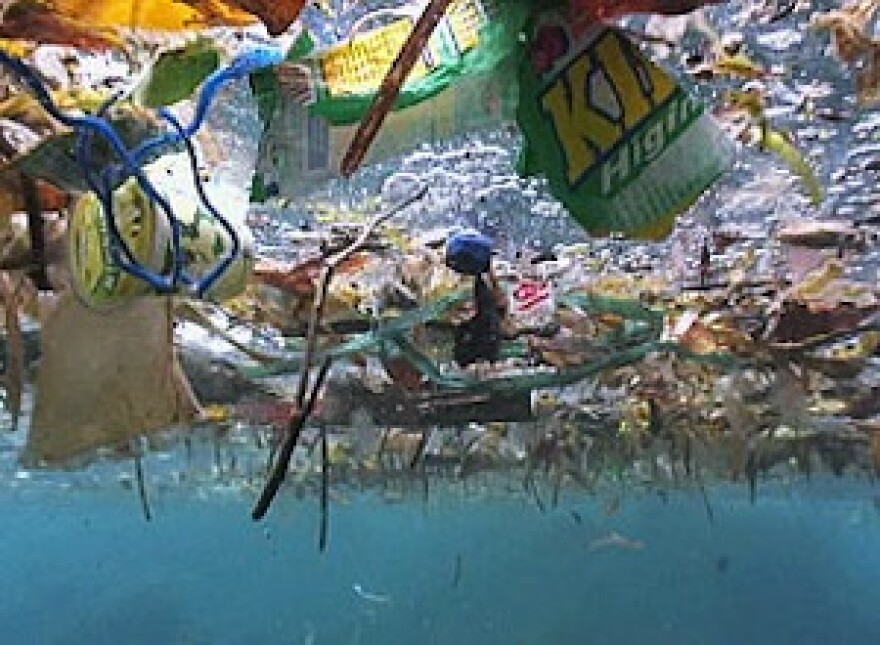The Great Pacific Garbage Patch is a huge floating island of plastic. Twice the size of Texas, it's riding the ocean currents between California and Japan, threatening sea life along the way. Flagstaff-based marine scientist Maria Campbell studies ocean micro plastics with the Sir Alister Hardy Foundation for Ocean Science. She says the plastics absorb harmful chemicals in the water.
"And then what you have is animals ingesting these pieces of plastic and then these chemicals getting into the food chain", Campbell says.
80% of the Great Pacific Garbage Patch is made up of plastic from common household items like water bottles, plastic bags and clothing made from synthetic fabrics. The other 20% comes from offshore debris like ship cargo and fishing nets. It's all tangled up in a giant "trash vortex", baiting marine animals in search of food.

"These turtles think that the plastics are jelly fish and consume them," Campbell says. "Also, seabirds have been badly affected by plastics, and there was recently photographic work done by a photographer from Seattle, with albatross chicks - these giant, beautiful birds - dead with stomach contents full of plastic bits."
A drone survey conducted in 2014 estimated the "Patch" contained 100 times more plastic by weight than previously measured.
There's a worldwide push for immediate clean-up of the toxic floating island, and researchers are working with organic materials like algae and fungi to create alternatives to non-biodegradable plastic.




